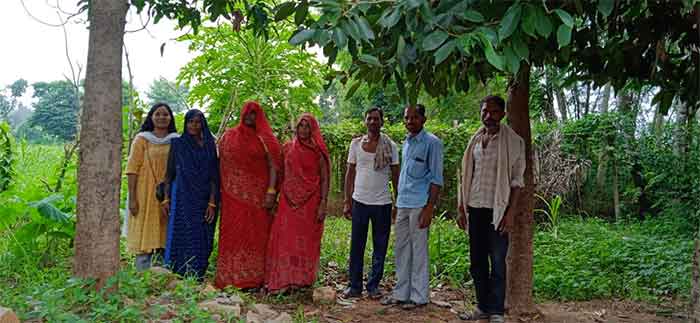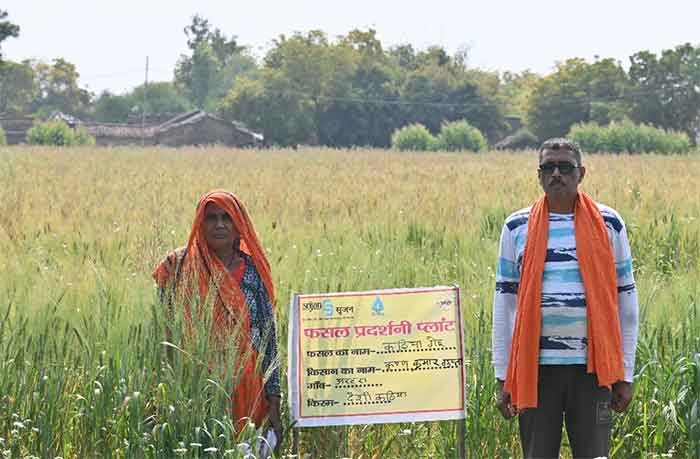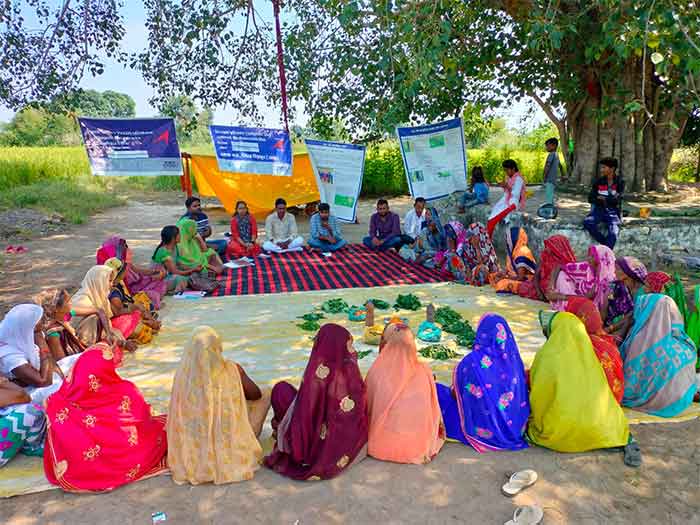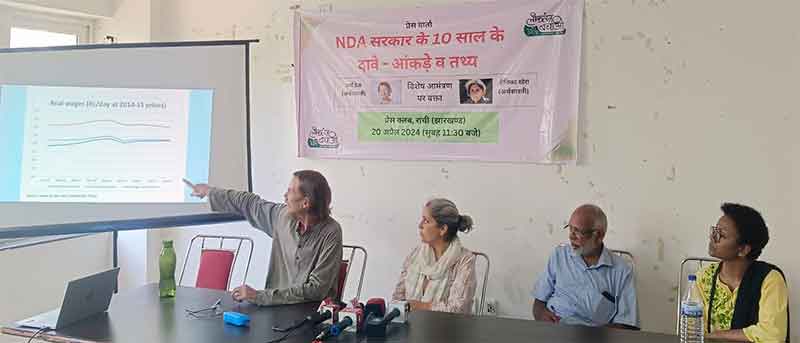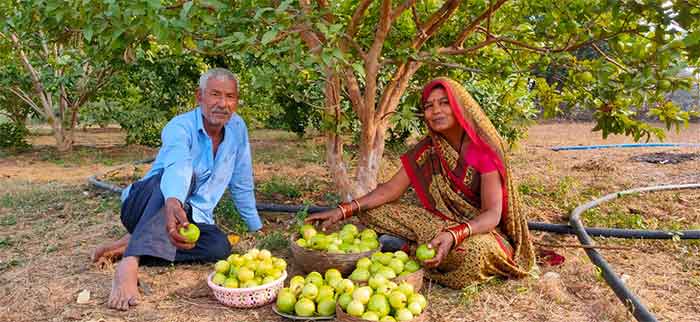
One of the most important questions in the development debate is whether economic viability of small and marginal farmers can be strengthened in sustainable ways. This question is all the more important in a country like India where small scale farming is the most common source of livelihood. The objective of land reforms is to make available at least some farmland to landless rural households, and to the extent that this can happen, the number of small farmers can increase further.
Those who want to spread big business led farm development have been trying to discourage small farmers and small farmer based farm development in every conceivable way, arguing that small farming in just not economically viable. On the other hand, those who are committed to equality based, livelihood-protective farm development have emphasized that the real challenge is to find ways and means of increasing sustainable net income for small farmers for which earning must increase at least moderately while costs can be reduced even more significantly. Any solutions that are found must be sustainable ones, based on protecting the resource base of soil and water. If alongside it can be ensured that these solutions also contribute to climate change mitigation and adaptation, then this becomes a truly win-win situation. It is in the context of such small farmers that the slogan Chhota Kisan Zindabad acquires its true significance as a small organic farmer not only provides healthy food and protects environment, but with due caution observed also becomes a constant contributor to climate change mitigation and adaptation.
In this context let me describe the experiences of two very remarkable farming households whom I met recently in Tikamgarh district of Madhya Pradesh. Balchand Aharwal from Lidhaura Tal village has just two acres of land but he uses it with such great creativity that he is able to earn a net income (minus expenses) of around Rs. 1,80,000 in a year (on average Rs. 15,000 per month), apart from providing highly nutritious year round food to his family (his entire produce is organic). This does not include the income he may earn occasionally when employed as a trainer for organic farming, nor does this include the Rs. 32,000 award he received some time back as a model natural farmer. He is able to provide for the higher education of his two sons, one of whom is doing Math Honors while the other one is doing a nursing course.
Balchand has been able to achieve this by using his two acres of land in a very thoughtful way to grow a very wide diversity of crops. He has a multi-layered garden for this as well as orchards of guava, pomegranate and other fruits. As he does not use chemical fertilizers or pesticides or a tube well, his expenses are minimal. He has only a traditional well which provides only meager quantity of water for irrigation, and Balchand has learnt to use this sparingly.
He prepares organic soil nutrients and pest repellants on his farm and adds to his income by preparing extra quantities which can be sold to other farmers.
His earnings have enabled him to make additions to his house which can be used as a training space.
The other example is of a woman farmer Phulabai and her husband Sarman, from Digaura village. They have only one acre of land of their own which they are using now as multi-layer garden and orchard. They are likely to have a net monthly earning of around Rs. 10,000 from these efforts (after deducting all expenses, which are very meager). Apart from improving their own nutrition, they have been able to invest in a tube well along with the wider family, clear previous debts and when their son in Bhopal was temporarily without work, they were able to send cash to help him.
There are many such small farmer households in the work area of SRIJAN in Tikamgarh as well in some other districts. I have been meeting such farmers in many places in different parts of the country (and many of these organic farmers have been women farmers) in the work area of organizations like Gorakhpur Environment Action Group in Eastern Utter Pradesh, in the work area of Sahbhagi Vikash Abhiyan in western Odisha, in the work area of Yuva in Vidarbh as well as other places.
What is most remarkable about these families is how happy they are with their highly creative work. This creativity is able to absorb the interest of even those farmers who had been careless about their work in the past. During my recent visit to Tikamgarh district I came across a farmer of Lakhaipur village who was known as a habitual drinker of liquor in the past, messing up his work badly and getting into fights all the time. After he has taken up organic farming in a multi-layered garden, villagers say he has given up liquor, remains absorbed in his work from dawn to dusk and has created a beautiful and highly productive garden! Small farmers can in fact be the most caring organic farmers as in the small land holding they recognize almost all plants and their needs in every nook and corner of their fields. In addition the farming for healthy food production as practiced by these informs involves nil or minimal GHG emission, while they make substantial contribution to absorbing of such gases by improving soil and by growing trees.
Hence the truth is exactly the opposite of what big business interests say—while they frequently talk about the non-viability of small farmers, in reality small farmers can be perfectly happy and earn enough in ecologically protective ways if allowed to work freely and without disturbance. If the government shifts its subsidies, currently given for ecologically destructive farming, to these farmers then their economic condition will improve further. Or else the government can give a lump sum payment every year to such farmers in recognition of the contribution they make to environment protection and production of healthy food, increasing it at the time of droughts and floods, disruptive weather and disasters.
Bharat Dogra is Honorary Convener, Campaign to Save Earth Now. His recent books include India’s Quest for Sustainable Farming and Healthy Food, Man over Machine—A Path to Peace and A Day in 2071.

